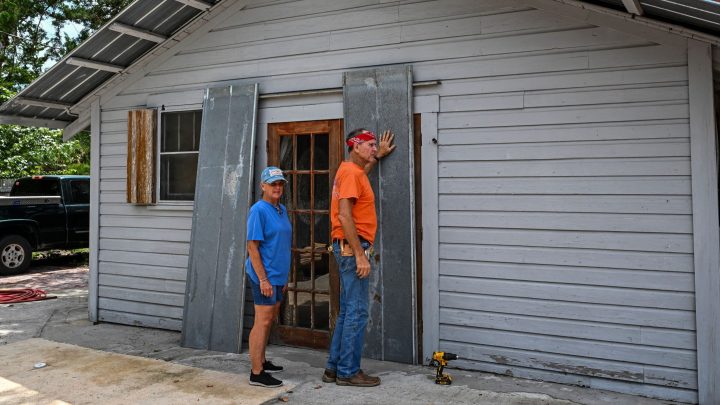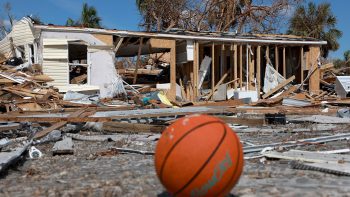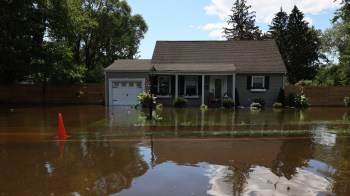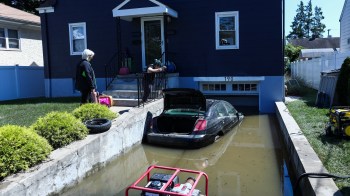
More Americans are going without homeowners insurance. That could spell trouble.
More Americans are going without homeowners insurance. That could spell trouble.

Hurricane Idalia intensified Tuesday as it approached the Gulf Coast of Florida. Given that, recent reporting in The Wall Street Journal caught our eye. Its headline: “Americans Are Bailing on Their Home Insurance.”
The Journal reported that some 12% of homeowners are choosing not to carry insurance. That could be a bit of an issue if they need to rebuild after their home is damaged or destroyed.
If you have a mortgage, you’re required to have homeowners insurance, but that’s not the case if your house is paid off. Most people still do, noted Loretta Worters at the Insurance Information Institute. But the number of those who don’t is rising.
“You have about 88% of people that do carry it, as opposed to a few years ago where it was about 92% to 95% of people that had homeowners insurance,” she said.
Of those who go without insurance, nearly half make less than $40,000 a year. And with coverage getting a lot more expensive — especially in disaster-prone states like Florida and California — people are struggling to afford it.
“This generally tends to be people that are older in life or retirees, and they have to make decisions about what they can afford,” said Craig Fugate, a former administrator of the Federal Emergency Management Agency.
When people have to choose between keeping the lights on, buying food and medicine and paying their homeowners premium, insurance is one of the first things to go, Fugate added.
A lot of people also assume that if something does happen, the federal government will step in and help. “That’s a very dangerous financial mistake,” he said. “The federal government is not designed to do that.”
Home insurance is key to recovering from a disaster, per Carolyn Kousky at the Environmental Defense Fund.
“Households with insurance recover better, recover faster, have lower financial burdens post-disaster,” she said. “We also have research showing that as more people in a community have insurance, the local economy recovers faster as well.”
But with climate change making extreme weather more common and insurers facing mounting losses, we’re at an inflection point, according to Amy Bach at the consumer advocacy nonprofit United Policyholders.
“With the private sector behaving like private, for-profit companies do — which is moving out of areas that they don’t think they’re going to make money in — the imperative is on public agencies, public officials to come up with some new concepts,” she said.
Because, Bach added, it’s in everyone’s interest for people to be able to afford to buy homes and protect them.
There’s a lot happening in the world. Through it all, Marketplace is here for you.
You rely on Marketplace to break down the world’s events and tell you how it affects you in a fact-based, approachable way. We rely on your financial support to keep making that possible.
Your donation today powers the independent journalism that you rely on. For just $5/month, you can help sustain Marketplace so we can keep reporting on the things that matter to you.
















